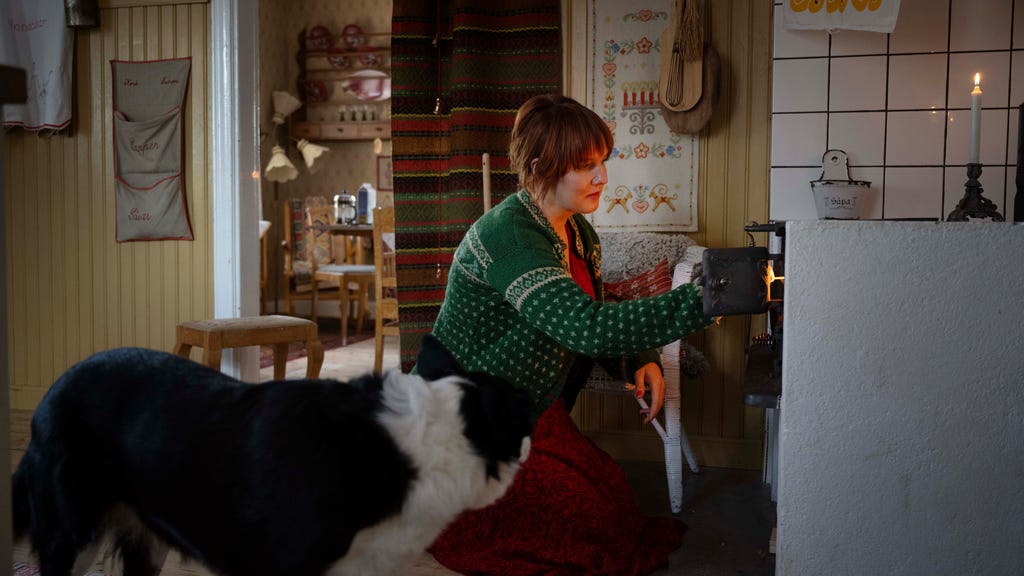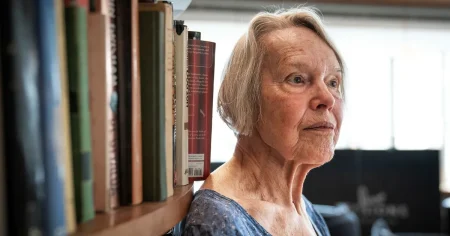Clara Lidström, known by her blog alias Underbara Clara, embraces a traditional aesthetic, filling her home with vintage finds, handmade crafts, and festive decorations. Her penchant for 1950s style, homemaking, and crafting often provokes strong reactions, with some dismissing her pursuits as frivolous or even anti-feminist. Lidström, however, views these activities not as a retreat from modern life, but as a form of resistance against consumerism and a celebration of sustainable living. She finds solace and creative expression in these practices, especially given the demands of her professional life. Lidström preemptively addresses criticism, acknowledging concerns about unpaid domestic labor and traditional gender roles. She argues that, while these are valid points, they shouldn’t invalidate the genuine enjoyment and empowerment that some women derive from homemaking. She stresses that judging women for finding fulfillment in these activities is reductive and ignores the complex interplay between personal preferences, societal expectations, and the need for meaningful engagement beyond the workplace.
Lidström’s approach to homemaking extends beyond mere aesthetics; it represents a conscious effort to reclaim and revitalize traditional skills. She embraces mending clothes, baking sourdough bread, and making her own decorations, activities she sees as both environmentally responsible and personally rewarding. This ethos also informs her approach to the holidays. While acknowledging the pressures of modern Christmas, Lidström advocates for a more intentional celebration, emphasizing the importance of preparation and mindful engagement in festive traditions. She believes that true holiday spirit arises not from instant gratification, but from the process of creating and sharing meaningful experiences. This perspective stands in stark contrast to the prevailing trend of seeking quick and easy solutions, and it challenges the notion that the desire for comfort and joy should come without effort.
For Lidström, the act of creating, whether it’s knitting, cooking, or decorating, offers a much-needed antidote to the stresses of modern life. A decade ago, she experienced a debilitating burnout, a result not of excessive homemaking, but of relentless work pressures. This experience reinforced the importance of prioritizing activities that bring joy and restore balance. She now emphasizes the need for self-care and finding moments of peace amidst the demands of everyday life, advocating for a more holistic approach to well-being that values both productivity and restorative practices. Lidström’s focus on crafting and homemaking isn’t about escapism; it’s about finding a sense of agency and purpose in activities often undervalued in a productivity-obsessed culture.
Lidström maintains a successful blog and online presence, sharing her passion for vintage style, homemaking, and DIY projects with a large following. While acknowledging the potential influence she holds, Lidström resists the idea that she promotes an idealized, unattainable lifestyle. She emphasizes the importance of finding what brings personal satisfaction, whether it involves traditional homemaking practices or not, and rejects the notion that women should feel pressured to conform to any specific domestic model. She stresses the importance of open communication and shared responsibilities within her own household, using tools like a shared spreadsheet to ensure equitable distribution of chores. Lidström’s approach is not about romanticizing a bygone era, but about adapting and applying traditional wisdom to contemporary life, promoting a balanced approach that values both personal fulfillment and practical considerations.
Beyond the surface level of vintage aesthetics and homemaking tips, Lidström uses her platform to address broader social issues. She is a vocal feminist, critical of consumer culture and exploitative labor practices. Lidström weaves these perspectives into her blog posts, engaging her readers in discussions about sustainability, work-life balance, and challenging societal expectations. She believes in the power of small acts of resistance, arguing that choices like mending clothes or cooking from scratch can be meaningful ways to push back against consumerism and reclaim control over one’s life. This commitment to social commentary sets her apart from many lifestyle influencers and demonstrates her dedication to using her platform to promote a more thoughtful and responsible way of living.
Most recently, Lidström has ventured into the world of publishing, reviving a classic format with her own interpretation of the kitchen almanac. Inspired by her grandmother’s well-worn copies, Lidström’s almanac combines practical tips, recipes, and ample space for personal reflection. She sees the almanac as a tangible tool for connecting with the rhythms of daily life and reclaiming the value of traditional homemaking knowledge. Lidström’s passion for this project extends beyond nostalgia; she views it as a way to empower individuals to live more sustainably, cultivate a deeper appreciation for everyday routines, and find joy in the simple act of recording life’s moments. This project reflects her broader philosophy of finding meaning and purpose in the often-overlooked aspects of daily life, and it exemplifies her commitment to sharing those values with her audience.














